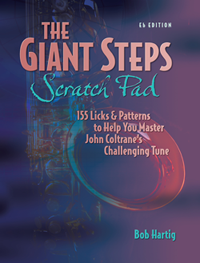On this rainy September afternoon, a departure from the normal focus of Stormhorn.com on jazz saxophone and storm chasing is appropriate. Nine years ago today, the weather was quite different from this present, somber overcast. Here in Michigan the skies were that crisp, crackling blue you get as autumn moves in. It was beautiful in New York City, too–a cloudless morning except for the thick, hot plume boiling out of the Twin Towers and spreading a pall of shock, horror, grief, fear, and anger across our nation.
Like any American old enough to watch and absorb the breaking news that day, I have my personal memories of September 11, 2001. I was sitting in my cubicle at Zondervan Publishing House when an email circulated from one of the employees saying that a plane had flown into the World Trade Center and that the aftermath looked terrible.
“How tragic!” I thought, not realizing that “tragic” barely qualified as an understatement for the holocaust that was beginning to unfold. I envisioned an accident involving a small, twin-engined private plane, not a commercial jet used as a missile by terrorists. Not until another email arrived announcing that the second tower had just been hit did I realize something much bigger was afoot. How big I still didn’t know, and even as I began to find out, I had a hard time wrapping my mind around the enormity of what was happening in Lower Manhattan.
Downstairs in the atrium, I joined a large group of employees who stood, transfixed, around a large television. Work? Who could work, and what manager would require us to? Together we watched incredulously as the towers burned. We gasped as first the South Tower collapsed, and then the North. “All those people!” sobbed one woman. I didn’t weep; the images on the TV screen seemed surreal to me, beyond emotion. I felt no sorrow, just disbelief and a kind of stunned, sick hollowness in my gut.
That day, over 2,500 people who entered the Twin Towers on what seemed like any other workday lost their lives. Heroes emerged in a moment of time–brave, ordinary firemen rising to the occasion, saving lives at the cost of their own when the steel girders buckled and the buildings plunged. And as that ghastly drama played out in New York, another jet crashed into the Pentagon and yet another fell from the sky in Pennsylvania.
How does one respond to so defining a moment in the history of our nation? How should one feel, what does one do, when an ordinary day becomes a day of infamy engineered by demon-possessed religious zealots? In my case, like others at Zondervan and across America, I labored through the rest of my workday in a state of numbness that made it impossible to accomplish anything, and then headed home.
Afterward, I headed to the weekly meeting of my Vineyard church home group. On the way, I drove past two women out for an evening jog. There they were, running down the sidewalk, talking and laughing as they ran, exactly as if nothing extraordinary had transpired during the course of their day.
How, I wondered, could they laugh? Evil had descended upon our country, an outrage whose aftershocks had not even begun to be felt. How could two people act so cavalierly, as if life simply goes on?
Of course I was making snap judgments based on fleeting input. I had no idea what was actually going through those womens’ minds or what the day had been like for them. In any case, each of us processes crisis differently, and there’s no manual for human behavior on a day such as 9/11. The fact is, life does go on because it must, benumbed and forever altered but moving forward nonetheless.
The ability for individual Americans to laugh and proceed with their day-to-day affairs, even as we grieved as a nation, was perhaps the most immediate victory we could enjoy–a proclamation to those monsters masquerading as men that yes, you’ve hurt us, but by the grace of God, you will never, ever subdue us.
To those who lost their lives nine years ago today: We will never forget.
To the selfless firemen, policemen, and other public servants who bought their badges of heroism at the ultimate personal cost: We thank you for your sacrifice and honor your deathless deeds.
To those whose hearts still ache over the loss of their loved ones in the tragedy of September 11, 2001: May God comfort you.
To all my countrymen who read these words: Let us always remember. And let us live our lives as the priceless gifts from God that they are, with purpose, integrity, freedom, charity, and an eye on blessing others. Perhaps the best way to honor those who died on 9/11 is to do what we can, in small ways or in great, to make our own lives count for something bigger than ourselves.
–Bob

